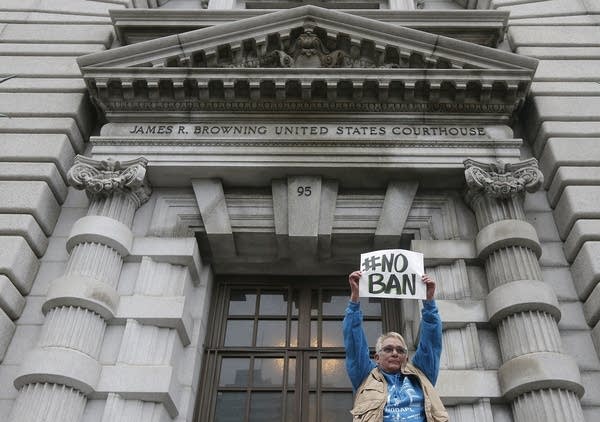Appeals court refuses to reinstate Trump travel ban

Karen Shore holds up a sign outside of the 9th U.S. Circuit Court of Appeals in San Francisco on Tuesday.
Jeff Chiu | AP
Go Deeper.
Create an account or log in to save stories.
Like this?
Thanks for liking this story! We have added it to a list of your favorite stories.


